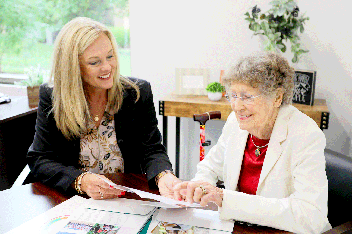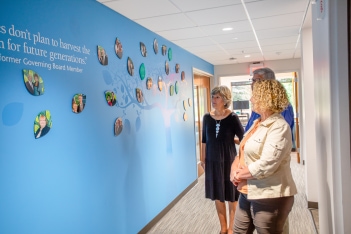By Nakia Lipscomb, Senior Director, Development
Donor-advised funds, also known as DAFs, are a charitable fund option that is growing in popularity. According to the National Philanthropic Trust’s 2023 DAF Report, DAF assets reached $228.89 billion in 2022, the second highest value on record. More than ever, donors are leveraging DAFs to make an impact on causes and nonprofit organizations important to them and as a catalyst for change in their communities and around the world.
Locally and nationwide, donors are using DAFs in creative ways, such as gifting them as presents for loved ones, establishing family bonding through grantmaking and fundraising for a specific cause or charity. DAFs also are growing in popularity among for-profit organizations and entrepreneurs, with some corporations beginning to offer DAFs as part of their employee benefit packages. From major philanthropists looking to maximize support for their foundation, to giving groups interested in pooling their donations, DAFs offer flexibility for donors and organizations at all giving levels.
DAFs have been a popular option with Dayton Foundation donors since the first one was opened in 1983 by former NCR Chairman William Anderson and his wife, Janice. Since the 1980s, our DAF options have grown to include the Charitable Checking AccountSM, a free, easy-to-use, tax-wise service; invested Donor-Advised Funds, a giving vehicle that allows for long-term growth; and Family Foundation PlusSM, a hassle-free alternative to a private foundation. Many donors prefer establishing DAFs through community foundations, such as The Dayton Foundation, to take advantage of their knowledge of pressing local issues and nonprofit organizations. Working with a community foundation also gives donors access to the staff’s charitable giving expertise, free of cost, to help structure their DAFs and ensure they are giving safely and effectively.
On the planned giving front, invested DAFs, such as Family Foundation Plus, have many similarities to private foundations but are not subject to the same rules and restrictions that can be complicated or problematic for donors. Many financial advisors encourage their clients to establish DAFs in lieu of creating a private foundation or to create wills or trusts that include DAFs with charitable designations. If the DAF is designated as the trust’s beneficiary, donors can easily make changes to their fund agreement, including revising which nonprofits will benefit after their death, without having to amend their trusts. Additionally, donors can establish DAFs to support one or more charities perpetually or for a specific period of time. Family Foundation Plus funds also offer infinite succession, allowing loved ones to carry out their family’s charitable wishes for generations to come.
The reach of DAFs has become so widespread that more than one out of every four dollars that individual Americans donate to charity goes to a DAF. If you are interested in learning more about how we can help you help your clients maximize their charitable giving dollars through DAFs, please contact me, Michelle Lovely or Marianne Requarth at (937) 222-0410.
To learn more about donor-advised funds and how we can help you help your clients make an impact on causes important to them, click here.








